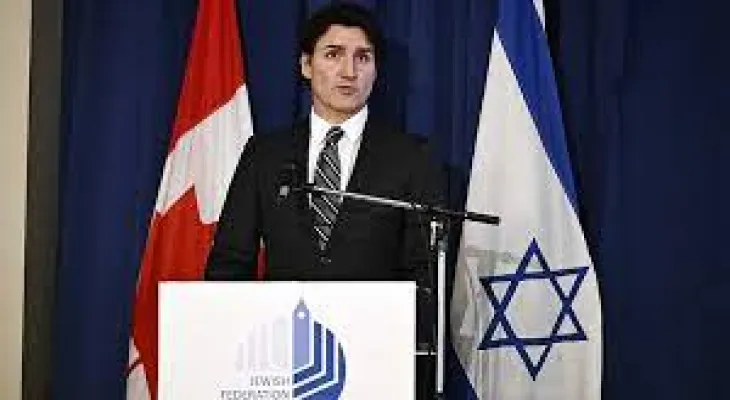Search here
Newspaper
Search here

Arab Canada News
News

Published: March 21, 2024
The Canadian parliament on Monday approved a proposal by a majority of 204 votes to 117 to stop arms exports to Israel, demanding an immediate ceasefire in Gaza, the release of hostages, and seeking "the establishment of the State of Palestine as part of a two-state solution through negotiation." Israel fears that other countries will follow its lead, such as the Netherlands, which is delaying the delivery of parts for the F-35 fighter jet.
Israel does not buy weapons from Canada, nor has Canada bought Israeli weapons in the past decade, making this step purely symbolic. However, since the outbreak of the war, Canada has prevented the sale of 11 armored police vehicles to the Israeli police and blocked shipments of night vision equipment to the Israel Defense Forces.
The problem with the Canadian decision, according to Yedioth Ahronoth newspaper, is that it reflects the difficult situation Israel is experiencing and reveals above all how the world quickly forgot the events of October 7 after standing with Israel. Sources familiar with Israeli-Canadian diplomatic relations say "the decision was inevitable," and that the decision partly stems from the large growth of the Muslim population in the country. The government, considered friendly to Tel Aviv, relies on the New Democratic Party, which represents the center-left.
One official said: "The problem with Israel's status in Canada is primarily related to the demographic change in the country and the radicalism of the New Democratic Party." In addition, the professional unions in Canada lead a hardline anti-Israel campaign and pressure the leftist figures in the ruling Liberal Party and the New Democratic Party.
The New Democratic Party had introduced the anti-Israel proposal in parliament to recognize the Palestinian state. The original proposal presented by New Democratic Party MP Heather McPherson was heavily biased against Israel, holding Israel responsible for resolving the conflict, including the ongoing war, blatantly ignoring Hamas's responsibility, and McPherson also included unilateral recognition of the Palestinian state in the proposal without removing Hamas from power in Gaza.
Unilateral recognition of the Palestinian state traditionally contradicts Canadian foreign policy. Canadian prime ministers, both Liberal and Conservative, have always supported the two-state solution through negotiations.
The Jewish community in Canada and the Israeli embassy immediately acted to thwart McPherson's proposal and explained that such a proposal was unacceptable. More than 30,000 Canadian Jews and their Canadian allies rallied against the New Democratic Party’s proposal, sending 900,000 emails to members of parliament and making thousands of phone calls to their offices. These efforts bore fruit.
At the request of the Israeli embassy, Minister Benny Gantz spoke with Canadian Prime Minister Justin Trudeau, asking him to prevent the passage of the original proposal, fearing that some members of the ruling party would allow the proposal to pass as is, a scenario that would be unbearable for Israel. But the pressure exerted by the Jewish community on the Liberal government, along with Gantz’s pressure on Trudeau, prevented the worst scenario from happening.
On Monday night, the Liberal Party reached a compromise with the New Democratic Party on a softened text, removing unilateral recognition of the Palestinian state and replacing it with a call to "work with international partners to actively pursue the goal of establishing a comprehensive, just, and fair Palestinian state." A lasting peace in the Middle East, including the establishment of a Palestinian state as part of a two-state solution through negotiation.
The decision also included another problematic clause for Israel: calling for a future arms embargo on Israel and condemning alleged extremist settlers in the West Bank. Although the proposal is not binding, the Canadian Foreign Minister announced that Ottawa had decided to stop arms sales to Israel, which sparked condemnation from Tel Aviv. Israel estimates that the foreign minister’s statement was a concession to the left in exchange for softening the proposal.
The Canadian Jewish community said that even the amended proposal is "problematic" and places too much blame on Israel while focusing little on dismantling Hamas or curbing terrorism against Israel. The Jewish community called on its supporters to thank the 117 members of parliament who voted against rewarding Hamas and changing Canada’s foreign policy for years to come.
Comments